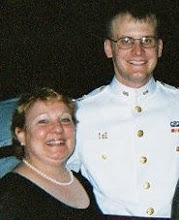Sunday, May 23, 2010
Elder Abuse Prevention Conference review
This is the third Elder Abuse Prevention Conference I have attended. Each year it improves dramatically. The Keynote speaker Paul Greenwood, San Diego County Deputy District Attorney delivered an educated, dynamic heartfelt presentation. He was engaging, humorous and passionate about his topic. He spoke about the myths and misconceptions surrounding the investigation and prosecution of criminal elder abuse cases. He also addressed financial exploitation and how to best recognize, investigate and prosecute allegations of elder abuse. Dr. Mindy Schaffner addressed the unique considerations of mental health and aging. The audience was very diverse and Dr. Schaffner answered questions and took comments providing a lively interactive session. I believe the group could have continued on for another hour we were sad to have to call a halt so conference participants and attendees could have lunch. After lunch, Therese Murphy, Yakima County Prosecuting Attorney, discussed what we are doing locally to combat elder abuse and discussed locally prosecuted cases. She identified specific pieces of information that are needed to conduct a successful prosecution of an abuse case. Ms. Murphy stated financial institutions are now able to report suspicious activity on a clients account to Adult protective services. Another breakout session included a presentation by a secret service agent, John Lowry. He spoke about scams and fraud targeted to vulnerable adults and how to avoid identity theft. Mr. Lowry was very knowledgeable, interesting and invited questions from the audience. The conference ended with the panel of experts answering questions from the attendees. The conference was time well spent.
Sunday, May 16, 2010
Elder Abuse Conference
This week on 5/19/2010 the Elder Abuse Conference will be held at the Clarion Hotel. One of the guest speakers is Dr. Mindy Schaffner. I am looking forward to attending.
Monday, February 8, 2010
Assessments of residents in Assisted Living Centers
The position of the licensed nurse in an Assisted Living Center comes with a lot of autonomy and requires the discipline of a self starter. How to integrate assessment skills with the requirements of an assisted living is challenging for nurses who enter the field without the experience of well developed critical thinking. Assessment of a resident needs to include information from family members, the resident, the resident's physician, case manager and the licensed nurse. The assessment is pivoted around what makes up the resident's life, not just a head to toe physical assessment. The question that needs to be answered is "Can the facility meet the needs of the resident in a manner that provides the highest quality of life for that resident?" Combining all the information regarding a resident and developing a service plan that identifies what services the resident needs and wants, at the time he or she wants, in the manner he or she wants, determines if the resident's needs will just be met or if the needs will be met in an atmosphere that validates the person and supports their rights.
Labels:
assessments,
assisted living,
challenges,
resident rights
Thursday, January 28, 2010
Making a connection
Elderly clients are so intriguing. I was a guest at a facility this week in which I was privileged to observe the activity staff engaging residents with music. A number of the residents were unable to follow a conversation due to advanced dementia, however, they responded with enthusiasm, clapping of hands and a few even joined in with the singing. Although the pathways for verbal communication due to dementia are not accessible, music seems to be able to connect residents with even the most advanced dementia to those around them. A young man shared with me that his grandmother, who he was very close to when growing up, no longer recognizes him however when he plays the guitar for her she lights up and smiles. He said this is a gift he is able to give her when he visits every week. This facility plays music for the residents through out the day that includes music from their era, gospel and soothing sounds. Staff are constantly observing the reactions of the residents so they are available when a moment happens and a door opens for just a little while, they are there to connect with the resident. Each resident was acknowledged, validated and spoken to respectfully several times during my visit.
Labels:
connecting,
dementia,
music,
respect,
singing,
validated acknowledged
Thursday, January 21, 2010
Taking belongings away violation of resident rights
An incident that I became aware of recently where caregivers had decided to remove a resident's belongings because he would make a mess of his room was disturbing. To take and with hold a person's belongings is a violation of their right to property. The caregivers needed to explore options that protected and ensured the resident's rights. Options possible could have included increased supervision, providing activities that interested the client, request a family member to visit during that particular time or exploration of why the resident was agitated and remove the cause. Did the agitation occur frequently or at the same time during the day or night? Did the resident need to be toileted, was the resident in pain, did the resident have gastric upset or was ill or possibly hunger? Putting residents in front of a television without monitoring what is being viewed could possibly be the problem. Residents with dementia lose the ability to process stimuli in the same manner that individuals who do not have dementia. Providing care to individuals with dementia is challenging because often they are unable to verbalize what is bothering them. Providing a safe environment with a high quality of life requires all the skills of observation, reasoning and critical thinking of the caregivers.
Labels:
evaluation,
options,
resident abuse,
resident rights
Subscribe to:
Posts (Atom)

